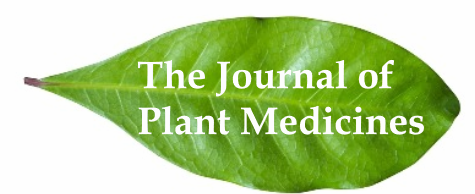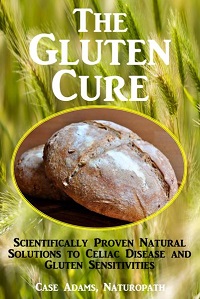Eating Carrots Helps Prevent Stomach and Prostate Cancer

Photo by Ashwin Kamath
Increasingly we are realizing that nature provides the best strategy to avoid cancer. Dietary strategies to avoid cancer are certainly not foolproof in the face of so many environmental challenges. But study after study has been showing that certain natural foods and herbs can help our bodies avoid cancer.
Such is the case for carrots. Several studies have illustrated and confirmed that carrots provide anticancer benefits, at least in the cases of gastric and prostate cancers.
In this article
Gastric cancer risk reduced with carrot consumption
Five international studies – which studied more than 200,000 people in different countries – have proven the case for carrots’ ability to help prevent stomach cancer. The studies were done in Japan, Sweden, the Netherlands and Lithuania.
When the results of these studies were combined and reduced, researchers found that increased carrot consumption reduces the risk of gastric cancer by 26 percent. The research was published in December of 2015 in the Journal of Gastric Cancer.
Carrots reduced the risk of another cancer – gastric cardia cancer – by even more. The combined research calculated that gastric cardia cancer risk was reduced by 38 percent from carrot consumption. Gastric cardia cancer is when cancer attacks the topmost portion of the stomach – known as the cardia.
How many carrots have to be eaten?
How many carrots did it take to get these results? The largest study, of 120,852 people in 2011, used 25 grams per day of carrots. The next largest, from Japan, studied over 60,000 people using three or more carrots per week.
The Lithuania study that included 1,137 people used between 1 and 6 carrots per week. This resulted in a 47 percent reduction of gastric cancer.
So we’re not talking a lot of carrots here. One serving of carrots according to the FDA will contain 128 grams. This is equivalent to one cup of chopped raw carrots.
One serving per day would thus equate to more than five times the carrot consumption that resulted in the 26 percent reduction of risk.
This would also mean that one serving per day of carrots should also result in an even greater reduction of cancer risk.
Carrots reduce risk of prostate cancer
Stomach cancer isn’t the only type of cancer that carrots will help prevent. In research published in the European Journal of Nutrition, researchers conducted a meta-analysis of available research correlating carrot consumption and prostate cancer prevalence.
The meta-analysis done by the researchers found that carrot consumption reduced the risk of prostate cancer by 18 percent.
The researchers also calculated the relationship on a dose-response. This found that for every 10 grams per day of carrot consumption, prostate cancer risk is decreased by 5 percent.
Remember that one serving of carrots – about a cup chopped – is 128 grams. This means that just one serving of carrot per day would equate to a 64 percent reduced risk of prostate cancer according to the dose analysis.
What makes carrots so special?
Carrots seem innocent enough in terms of vitamin content. Yes, a serving of fresh carrots can provide 21,383 IU of vitamin A (428% Daily Value). And nearly 17 micrograms of vitamin K (21% of Daily Value). And a serving of carrots provides over 24 micrograms of folate (6% of Daily Value).
Outside of the vitamin A content, there doesn’t seem much else that special about carrots from the vitamin-mineral data. Yes, they do contain a fair amount of calcium, magnesium, phosphorus and potassium. But these are mostly in the single digit Daily Value levels. And its vitamin C levels – at 7.6 milligrams per serving – is only 13% of Daily Value.
But carrots provide a phytonutrient sneak attack in the form of special compounds. These include compounds called polyacetylenes. These are natural polymers of acetylenes that occur in certain herbal medicines – and notably in carrots. The most prevalent polyacetylenes in carrots include falcarinol and falcarindol.
Polyacetylenes are notable because they have been shown to increase the rate of DNA repair within cells. When DNA repair is slowed, cancer risk is raised.
A 2014 study from the European Journal of Pharmacology found that falcarinol polyacetylenes inhibited the breast cancer resistance protein.
Another secret weapon carrots have is their beta-carotene and alpha-carotene content – and to a lesser degree, gamma-carotene. These carotenoids help stop free radical formation with their antioxidant properties. Many free radicals get that way from oxidation. With greater carrot consumption, our cells are exposed to fewer attacks from free radicals.
Carrots have greater levels of the E-beta-carotene isomer. This is a stronger isomer than the Z-isomer (cis). This E-beta-carotene molecule is also more durable in storage.
Carrots also contain the phytocompounds zeaxanthin and lutein. This is a particularly important nutrient to the health of the eyes – but also provides antioxidant benefit in other parts of our physiology.
Carrots also contain phenolic hydroxycinnamic acid compounds such as caffeic acid, ferulic acid and coumaric acid. These, together with anthocyanidins, provide unique antioxidant and healing benefits that will help reduce our risk of any cancer.
Carrots also contain a beneficial amount of fiber, at 2.8 grams. More than half of this is insoluble fiber, which is extremely beneficial for the digestive tract and its microbes.
Not all carrots (colors) are alike
There are a number of different varieties of carrots. They can be generally classified by their color pigments. The general carrot species is Daucus carota subspecies Sativus. But there are several cultivars, which include Chantenays and Nantes.
But there are also different pigment varieties. These include purple and yellow carrots. The typical orange carrots are high in the beta-carotene. But purple and red carrots are higher in anthocyanins. And yellow carrots are particularly high in lutein.
These different carrots can also taste a little different – but still most carrots are sweet.
Like to juice? Fresh carrot juice will also contain many of these compounds, but with less than a third of its fiber content.
Carrot consumption has also been linked with reduce cardiovascular disease as well.
REFERENCES:
Fallahzadeh H, Jalali A, Momayyezi M, Bazm S. Effect of Carrot Intake in the Prevention of Gastric Cancer: A Meta-Analysis. J Gastric Cancer. 2015 Dec;15(4):256-61. doi: 10.5230/jgc.2015.15.4.256.
Ekström AM, Serafini M, Nyrén O, Hansson LE, Ye W, Wolk A. Dietary antioxidant intake and the risk of cardia cancer and noncardia cancer of the intestinal and diffuse types: a population-based case-control study in Sweden. Int J Cancer. 2000;87:133–140.
Kobayashi M, Tsubono Y, Sasazuki S, Sasaki S, Tsugane S. JPHC Study Group. Vegetables, fruit and risk of gastric cancer in Japan: a 10-year follow-up of the JPHC Study Cohort I. Int J Cancer. 2002;102:39–44.
Huang XE, Hirose K, Wakai K, Matsuo K, Ito H, Xiang J, et al. Comparison of lifestyle risk factors by family history for gastric, breast, lung and colorectal cancer. Asian Pac J Cancer Prev. 2004;5:419–427.
Steevens J, Schouten LJ, Goldbohm RA, van den Brandt PA. Vegetables and fruits consumption and risk of esophageal and gastric cancer subtypes in the Netherlands Cohort Study. Int J Cancer. 2011;129:2681–2693.
Xu X, Cheng Y, Li S, Zhu Y, Xu X, Zheng X, Mao Q, Xie L. Dietary carrot consumption and prostate cancer. Eur J Nutr. 2014 Dec;53(8):1615-23. doi: 10.1007/s00394-014-0667-2
Christensen LP. Bioactive Polyacetylenes of Carrots in Cancer Prevention. Bioactive Dietary Factors and Plant Extracts in Dermatology. Humana, 2012.
Pollo LA, Bosi CF, Leite AS, Rigotto C, Kratz J, Simões CM, Fonseca DE, Coimbra D, Caramori G, Nepel A, Campos FR, Barison A, Biavatti MW. Polyacetylenes from the leaves of Vernonia scorpioides (Asteraceae) and their antiproliferative and antiherpetic activities. Phytochemistry. 2013 Nov;95:375-83. doi: 10.1016/j.phytochem.2013.07.011.
Tan KW, Killeen DP, Li Y, Paxton JW, Birch NP, Scheepens A. Dietary polyacetylenes of the falcarinol type are inhibitors of breast cancer resistance protein (BCRP/ABCG2). Eur J Pharmacol. 2014 Jan 15;723:346-52. doi: 10.1016/j.ejphar.2013.11.005.
Other prostate articles:
Ayurveda for prostate
Herbs for enlarged prostate
Mushroom therapy
TCM and Acupuncture
Polyphenol foods
Fried foods and prostate































